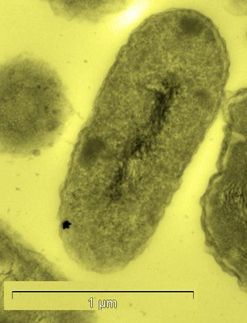New Phase II Data Shows Improvement in Disease Activity For Psioriasis Patients With Abbott's HUMIRA(R)
Psoriasis patients receiving HUMIRA® (adalimumab) achieved significant improvement in disease activity and quality of life through 60 weeks of treatment, according to new Phase II study results. The study, which assessed HUMIRA in patients with moderate to severe chronic plaque psoriasis, showed that nearly 70 percent of patients receiving HUMIRA 40 mg every other week (eow) experienced a 75 percent improvement in disease activity (known as a PASI 75 response) at week 60.
Psoriasis is a chronic, non-contagious autoimmune skin disease characterized by very dry, scaly and cracked skin; skin pain; and patches of red, raised skin known as "plaques." Despite many available treatment options for the disease, some biologic treatments that target specific aspects of the immune system and help prevent the rapid growth of skin cells and formation of plaques are proving to be effective for those with moderate to severe forms of psoriasis - which accounts for approximately one-third of the 4.5 million people in the U.S. who suffer from the disease.
In the study, 67 percent of patients taking HUMIRA achieved at least a 75 percent improvement in disease extent and severity after 60 weeks, as measured by the Psoriasis Area and Severity Index (PASI) score, which measures improvements in the severity and lesional characteristics of chronic plaque psoriasis. Furthermore, after 60 weeks more than one-third (36 percent) of patients taking HUMIRA 40 mg eow achieved PASI 90 - a measurement that correlates to at least a 90 percent reduction in disease activity and severity score and is considered a significant skin measurement that goes beyond what is typically highlighted in clinical trials. Additionally, almost two-thirds (63 percent) of patients were determined to be "clear" or "almost clear" of their psoriasis as measured by the Physician's Global Assessment, another measurement tool used by physicians to assess severity of disease.
Other news from the department research and development

Get the life science industry in your inbox
By submitting this form you agree that LUMITOS AG will send you the newsletter(s) selected above by email. Your data will not be passed on to third parties. Your data will be stored and processed in accordance with our data protection regulations. LUMITOS may contact you by email for the purpose of advertising or market and opinion surveys. You can revoke your consent at any time without giving reasons to LUMITOS AG, Ernst-Augustin-Str. 2, 12489 Berlin, Germany or by e-mail at revoke@lumitos.com with effect for the future. In addition, each email contains a link to unsubscribe from the corresponding newsletter.






















































